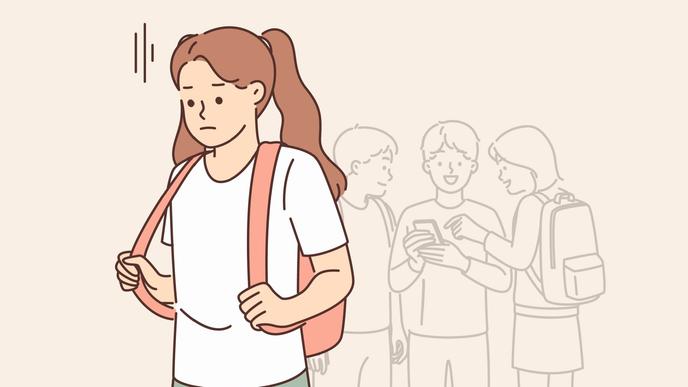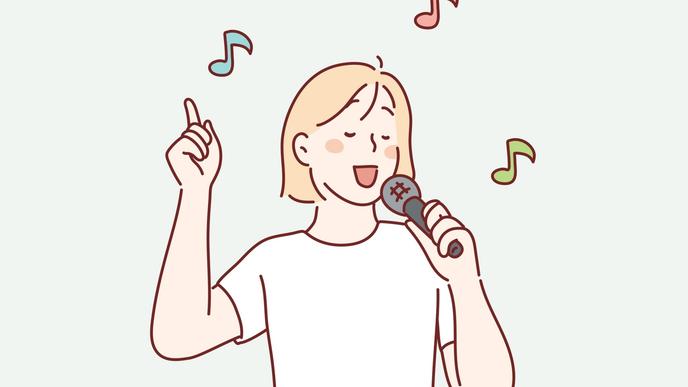How to Find Your Calling When You’re a Teen and Nothing Seems Interesting
“What should I do with my life?” At some point, every teenager asks themselves this question.

And it doesn't really matter whether it's about choosing a hobby or a future career-the two are closely connected. According to statistics, about 71% of high school graduates choose their path based primarily on personal interests. Psychologists and career advisors unanimously agree: this is the right approach. While having interests won't guarantee that you'll work in your chosen field in today's ever-changing world-or that your interests won't shift-it's still incredibly important to have your own clearly defined passions. They serve as a foundation for decision-making, motivate you to study and strive for more, help build relationships, and shape your character.
But what if you don't have any interests at all? Why does this happen to teens, and what can be done about it? Don't panic-we're about to sort it out.
"Why am I not interested in anything?"

The most important thing to clarify is this: there's absolutely nothing wrong with you. There are millions of people of various ages and professions who face the same problem-feeling apathetic and uninterested in any hobby or activity. There are many possible reasons for this state, and it's not necessarily pathological or unhealthy.
Sometimes, a lack of interest can simply be a temporary emotional burnout caused by mental exhaustion and fatigue. If you've been under stress for a long period (like studying all year for difficult exams), it's only natural that you now feel like doing nothing but lying in bed and staring at the ceiling. When we're overworked, our nervous system needs to recover-and it can only do so through familiar, low-energy activities. That's why after school or work, we often just want to "zone out" instead of diving into new hobbies that require mental energy and concentration.
In this case, if your disinterest was preceded by stress, the best thing to do is truly nothing. Give yourself a month-or at least a couple of weeks-of guilt-free rest. Most importantly, don't force yourself into anything or beat yourself up. The brain doesn't differentiate between actually doing work and just thinking about it-it gets tired either way. So, while resting, focus entirely on rest. Don't mentally return to tasks and responsibilities.
But what if you suddenly lost interest in your hobbies without experiencing major stress, and this state has lasted more than a month? That might be an existential crisis. While it's commonly believed that people face their first existential crisis around age 30, that's a myth. Most people experience it for the first time during adolescence, between the ages of 13 and 18. This is becoming increasingly common due to intense academic competition and the influence of social media, where you constantly see posts like "Made my first million at 15."
Symptoms of an existential crisis, besides apathy, can include headaches, insomnia (or constant sleepiness), a sense of hopelessness, questions like "What's the point of my life?", conflicts with loved ones, chronic anxiety, low self-esteem, and an unclear sense of direction. Often, this state resembles depression or even evolves into a full depressive episode. But unlike clinical depression, existential crises are considered a normal part of personal growth-milestones that everyone eventually encounters. You can see a psychologist or therapist to help speed up the process, or wait it out and try some of the tips in this article-they're helpful, too.
Now, if you've never been interested in any hobbies for as long as you can remember-if you can't recall ever being passionate about anything-that may stem from excessive parental control. If someone has always made choices for you (like signing you up for an activity without asking), you may have never learned how to make choices for yourself. As an adult, this can lead to emotional immaturity, so it's important to become aware of the problem early and start practicing decision-making, even with small things. Choosing your first independent hobby is a perfect place to start.
"How can I find something I'll truly enjoy?"

Nearly all hobbies fall into two categories: active hobbies (which usually require leaving the house) and passive hobbies (which can be done at home or in one place). You can choose based on whether you're more of an introvert or an extrovert-but that's not all. Hobbies also help you build skills. Here are a few broad categories:
-
Sports-related hobbies: Biking, hiking, team sports, CrossFit, horseback riding, swimming-anything that develops you physically.
-
Nature and environment: Gardening, mushroom and berry picking, hiking, traveling, archaeology, fishing, caring for animals. These build empathy and attentiveness, and reduce stress.
-
Social hobbies: Singing, historical reenactment, dancing, debate clubs, stand-up, theater-anything that involves others. Great for emotional intelligence and leadership.
-
Handicrafts: Sewing, soap-making, candle-making, wood burning, cooking, knitting, scrapbooking. These improve fine motor skills and creativity, and are great for stress relief.
-
Engineering and building: Robotics, model building, puzzles. These develop logic, spatial thinking, and technical knowledge.
-
Artistic hobbies: Drawing, sculpting, photography, architecture. These build artistic taste, spatial awareness, and emotional insight.
-
Digital and literary hobbies: Blogging, gaming, programming, animation, poetry, creative writing, reading. These foster creativity, communication skills, and broaden your horizons.
How to discover a new hobby or passion

Reflect on yourself and your life
No one-not your parents, teachers, or friends-can tell you what your calling is or what you'll enjoy. Everyone is different, with their own values and outlooks. The first step in finding true interests is self-analysis, because the most fulfilling hobbies are usually those that align with your personality.
Find a quiet spot and answer these questions in a notebook or journal:
-
What are your strengths? For example, you make friends easily, have a good fashion sense, or are great with animals.
-
What does your ideal world look like? What do you see yourself doing in the future? Maybe you want a world where people help each other, and you'd like to volunteer from time to time.
-
What events in your life brought you the most joy? Which moments helped shape your personality? Maybe you once attended a food festival and were so inspired that you started cooking and experimenting at home.
You can also try writing an essay about yourself-as if you were describing yourself to your future self, or someone you admire. Use the answers above and reflect on your life, goals, and interests. You might be surprised to realize that something you saw as ordinary actually brings you joy and lights a spark inside.
Try things out in practice
You'll never know what really interests you until you try it. Surveys show that around 25% of teens have a general idea of what they'd like to do but don't know where to start. Maybe you've always admired cosplay, but creating costumes feels overwhelming due to lack of sewing skills. Try these approaches:
-
Find people who already do what you're curious about and ask them to show you. Start by asking questions, then try joining in. You could visit a friend's art studio or your parents' acquaintance's workshop.
-
Watch YouTube tutorials and follow along. Great for learning crafts, cooking, or technical skills.
-
Sign up for a workshop. Many are free-especially at festivals or city events. There are also online webinars.
Important: Try even the things you're unsure about. If someone suggests yoga or ice skating and you just shrug-go anyway. Try every hobby that even vaguely interests you and keep a list. Cross things off after trying them.
Lectera’s Online Courses by topic
Expand your circle
Could it be that your current environment is limiting your interests? Maybe the people around you don't have hobbies themselves, or dismiss your ideas with an eye-roll and a "That's dumb." Try meeting new people. You might discover hobbies you didn't even know existed until someone introduces you to them-like board games, sports, live music, or trivia nights. You might love it.
Scroll social media-yes, really
Surprising, right? You're probably here because you want to get away from Instagram. But what if you use it as research instead of a distraction? The goal isn't to mindlessly scroll-it's to spot others' interests. Pinterest is great for this. People often share photos of their hobbies.
A beautifully decorated journal might inspire you to try scrapbooking. A cozy café photo with a book and coffee? That's reading-a hobby too. Travel shots, diving gear, a homemade pie, handmade jewelry, interior design-behind every photo is someone's passion. Create a folder of inspiring content and try recreating what you see.
Of course, you may not discover your "true" hobby right away. And there's no guarantee it'll lead to a future career. But hobbies aren't only about finding the meaning of life. They're about relieving stress, recovering mentally, and finding joy. Forget the stereotypes-a hobby doesn't have to be trendy, outdoorsy, or impressive. If something brings you happiness, it's already a hobby. Give yourself time and don't be afraid to try things-and eventually, you'll find your passion.
Share this with your friends via:
Latest News

In the UK, £23 million has been allocated for the expansion of the EdTech Testbed program — pilots of educational technologies in schools and colleges.

In the US, Tuskegee University announced the launch of Tuskegee University Global Campus (TUGC) — a new online platform for distance learning.

A significant stage in the development of the alternative education system has begun in West Northamptonshire in the UK: the County Council is actively calling on parents, guardians, and trustees to participate in shaping the future of this key area.

Outwoods Primary School in Atherstone, Warwickshire, having experienced deep sadness after the loss of their famous cat, Silla, has found solace in a new pet – a Maine Coon named Aloysius O’Hara.

In modern universities, artificial intelligence, and in particular ChatGPT, is rapidly transforming from a controversial tool into a full-fledged student assistant.












 9 Career Mistakes Young Professionals Make
9 Career Mistakes Young Professionals Make
 £23 million allocated for the expansion of EdTech Testbed in the UK
£23 million allocated for the expansion of EdTech Testbed in the UK
 Tuskegee University launches Global Campus — a new online platform
Tuskegee University launches Global Campus — a new online platform
 Test: How Psychologically Mature Are You? Check Your Inner Foundation.
Test: How Psychologically Mature Are You? Check Your Inner Foundation.
 Test. Check Your Social Media Dependency Level!
Test. Check Your Social Media Dependency Level!
 Test: What Business is Right For You?
Test: What Business is Right For You?
